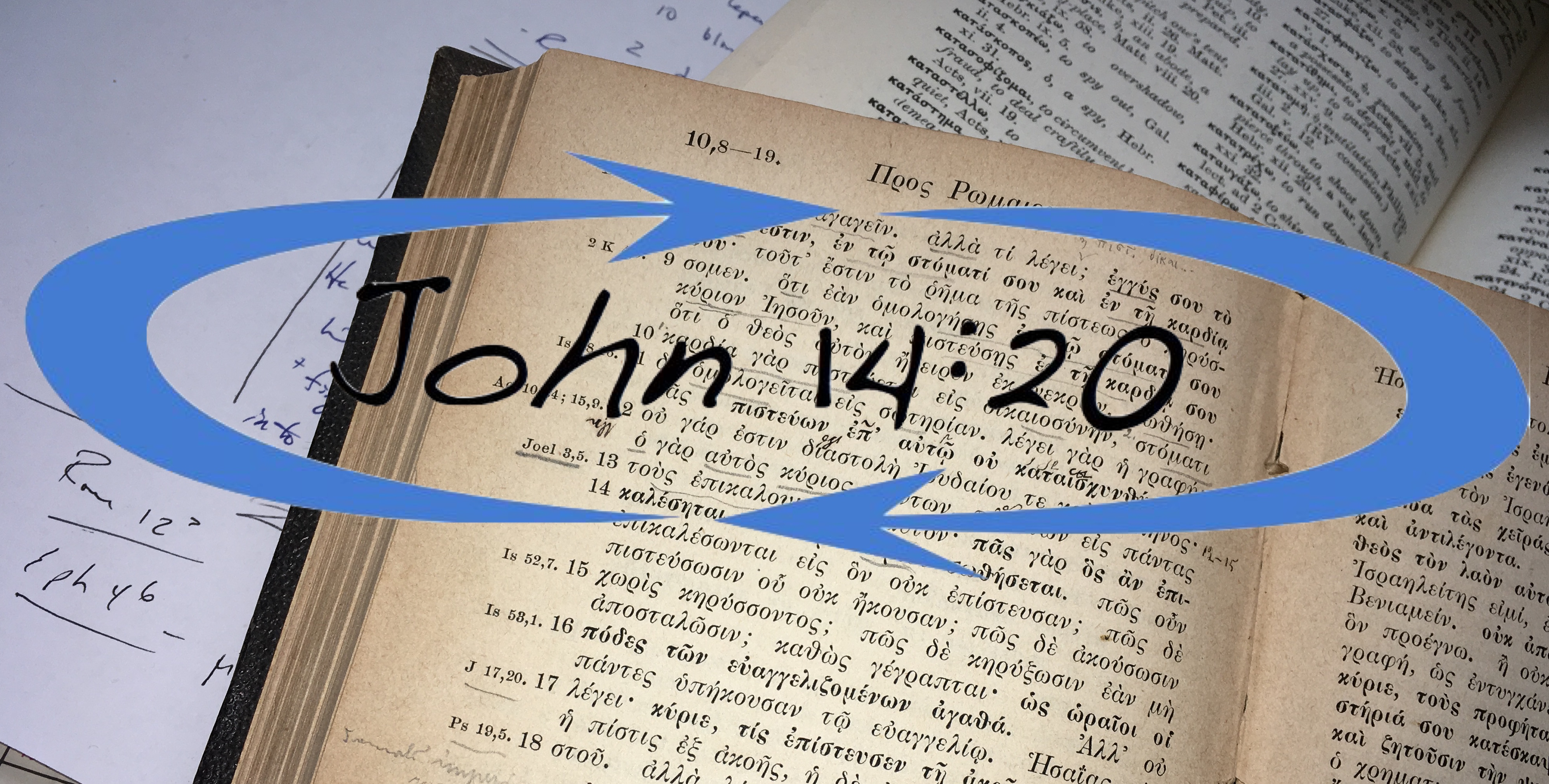John 1420 represents one of my favorite passages of Scripture. In John 14:20 Jesus states, “In that day you shall experientially know that I am in the Father, and you in me, and I in you.” The day is when the Son sent the Spirit. The Spirit began two works on that day which the disciples could experientially know: baptism and regeneration. By baptism, the Spirit places every believer since Pentecost of Acts two into Christ and therefore into the body of Christ (1 Cor. 12:13; Rom. 6:3-4). By regeneration the Spirit places Christ, the Father and Himself into the believer thus giving each believer eternal life, making each believer a child of God, and enabling the believer to live out that life and nature as God’s child (Jh. 3:3, 5; 1 Jh. 5:11, 1; 3:23-24). This twofold work of the Spirit, putting us in Christ and joining the members of the Godhead to us, becomes the foundation for the Christian life and living by grace. Hence, one of my favorite passages.
I enjoy studying and teaching God’s Word. I have pastored with a gracious group of brothers and sisters for twenty-five years. These posts include some of that teaching. My studies are often exegetical but I also attempt to systematize those exegetical conclusions to connect the dots. When Jesus walked with the two disciples after His resurrection, He systematically presented all the Scriptures having bearing on His sufferings and resurrection. When Paul went into the Jewish synagogues he similarly collated Scriptures which demonstrated his point. It is hoped that these short posts will help and challenge the reader to appreciate our God’s plan, including those aspects of His plan specifically for New Testament Christians.
As a result of this approach to God’s Word, I recognize the existence of one God existing in three persons. I recognize that God the Son became man and died for our sins, was buried and rose again to secure our salvation. I believe that He did all that is necessary for our eternal salvation, and all we are to do is believe in Him as the gospel (1 Cor. 15:1-5) defines Him. I recognize that our lives today are directed by the Holy Spirit and God’s grace. I am a classic dispensationalist along the lines of C.I Scofield, L.S. Chafer, and C.C. Ryrie.
I think about politics but will not post on politics except where it is necessary to address distractions to the Christian life. I do not find support in Acts or the epistles to the Church which endorse or encourage engagement by believers in the world system, either to reform it or to improve our way of life. We are to communicate to God for those in authority and to submit to those in authority providing they do not require or forbid us to do something which Scripture addresses CLEARLY (1 Tim. 2:1; Rom. 13). Christians have used Peter’s words in Acts 5:29 to authorize many actions which are opinions and not specifically addressed in Scripture.
I also have no interest in entering into debates. I take honest questions, but find too many (I may be this way also), who have already made up their minds. Paul warned both Timothy and Titus to not engage in debate over doctrine, warning that it will even result in you becoming fleshly (carnal) as trying to “win” a debate can be an expression of a couple works of the flesh: selfish ambition, zeal (fleshly zeal-translated “jealousy” in many English Bibles). I’ll attempt to field honest questions which have not been adequately developed in a post.
I trust these posts will be as helpful to others as seeing these truths, often expressed in short statements, have been to me. Our God is indeed the God of patience, encouragement, hope, peace, and His grace is multi-faceted.
Tim Hoelscher, October 2016
Other papers and audio can be found at our church’s website graceteaching.net.
And at Grace Teaching channel https://www.youtube.com/channel/UCaiMXqCbUrDxRf68oJj4O1g?view_as=subscriber
